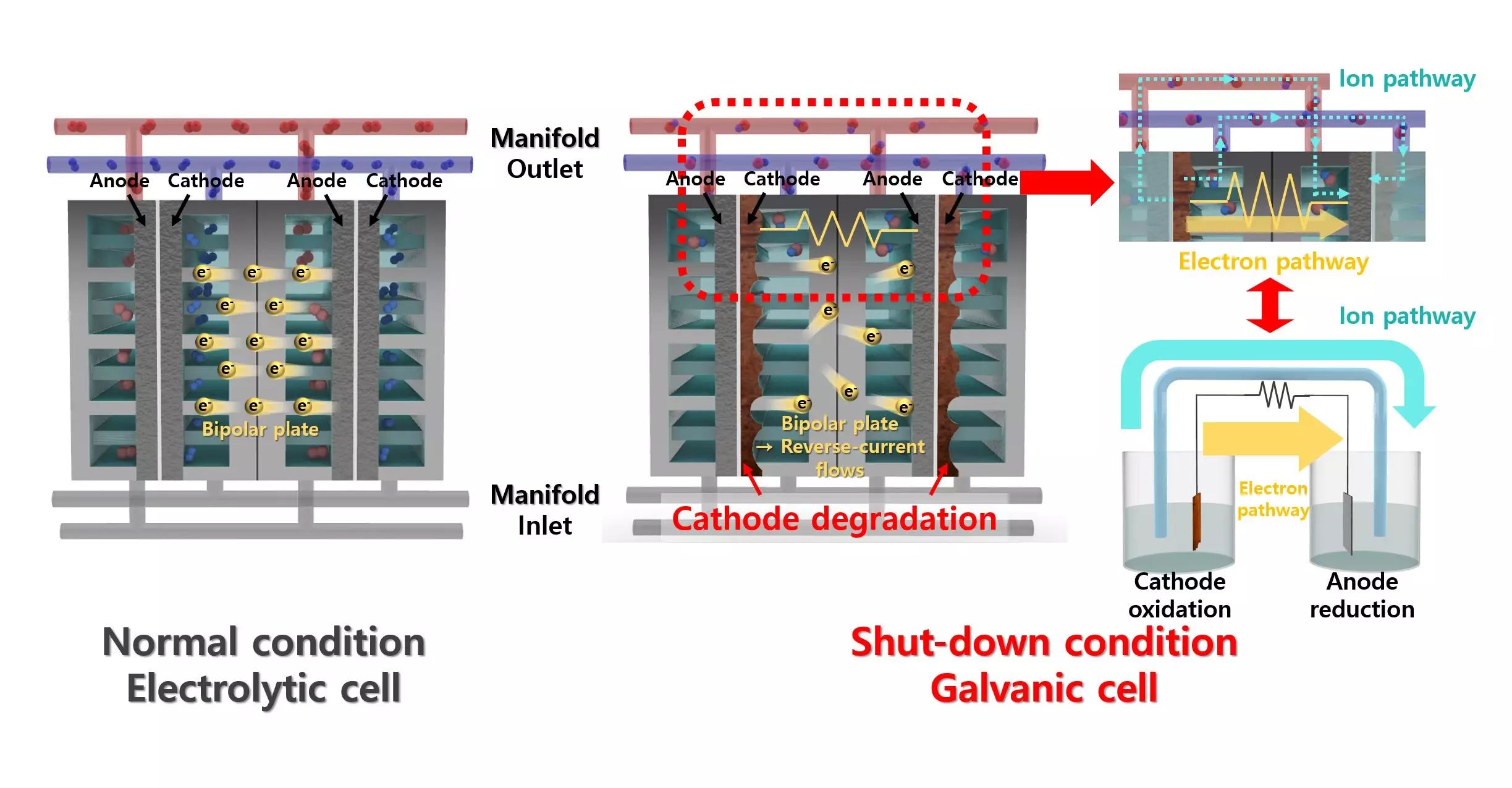In today’s renewable energy landscape, where solar, wind, and hydroelectric power dominate, one major challenge persists: the inconsistencies in energy supply. Weather and climate conditions can render these energy sources unpredictable, highlighting the necessity for reliable energy storage solutions. Hydrogen emerges as a pivotal intermediary in this equation, serving as an energy carrier that allows us to store excess power generated during peak production periods and use it when demand surges. The development of efficient and durable hydrogen production methods is thus of paramount importance.
Pioneering Research in Electrolysis
A recent groundbreaking study led by Professor Jeong Woo Han from Seoul National University, in collaboration with a dedicated team from Pohang University of Science and Technology (POSTECH), presents a compelling advancement in the realm of hydrogen evolution reactions (HER). The team, comprising experts such as Professor Yong-Tae Kim and Dr. Sang-Mun Jung, unveiled a novel catalyst that effectively addresses a significant drawback in alkaline water electrolysis (AWE) systems: the degradation caused by reverse currents. This innovative approach not only enhances the efficiency of hydrogen production but also addresses a long-standing issue that has plagued electrolysis technologies.
The Innovation of Lead Coating
Traditionally, the materials used in catalysts tend to prioritize high activity in hydrogen evolution, but this research breaks the mold by utilizing lead (Pb)—a material typically disregarded in this context due to its low catalytic activity. This unconventional choice of coating nickel (Ni) catalysts with lead results in a dual-function catalyst that not only enhances hydrogen evolution reaction efficiency but also bolsters resistance against reverse current damage. This layer of lead works as a co-catalyst that significantly improves both proton desorption and water dissociation, key processes in hydrogen production that lead to greater output from electrolysis systems.
Redefining Durability in AWE Systems
What sets this catalyst apart from its predecessors is its remarkable ability to withstand the harsh impacts of reverse current, a common consequence of energy fluctuation in AWE systems. In this ongoing battle against energy inconsistency, the introduction of a lead coating on a nickel catalyst represents a leap forward. The researchers have demonstrated that this method not only expedites hydrogen production but also protects the integrity of the electrolyzer during intermittent electricity supply.
Furthermore, this innovation eliminates the need for additional equipment or complicated configurations that previous solutions required to address the reverse current issue. This reduces complexity and potentially lowers the costs associated with hydrogen production systems, making this technology more accessible.
A Vision for a Hydrogen-Fueled Future
The significance of this research extends beyond laboratory walls. It presents a promising path toward realizing a hydrogen-fueled future that leverages the full potential of renewable energy. With hydrogen’s versatility—from powering vehicles to providing energy for industrial processes—the implications of enhanced and durable hydrogen production can revolutionize energy systems globally.
As the world grapples with climate change and the transition towards sustainability, innovations like this catalyst are not just technical advancements; they represent a critical step towards a viable and environmentally friendly energy ecosystem. This study exemplifies the relentless pursuit of solutions to the pressing challenges we face in energy storage and usage, emphasizing that with creativity and collaboration, crucial breakthroughs are formidable goals within reach.

